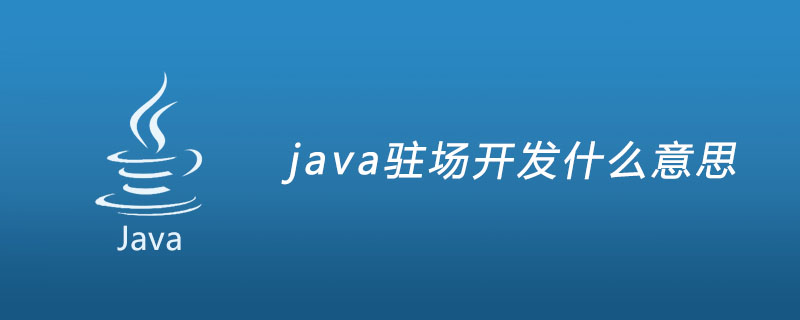Home >Java >javaTutorial >What does java resident development mean?
What does java resident development mean?
- 藏色散人Original
- 2019-05-29 15:32:0012100browse
Java is currently the most popular computer programming language in the world. It is an object-oriented programming language that can write cross-platform application software. This can be summarized that JAVA has its own unique advantages: the language is simple, it is an object-oriented, distributed application and safe, the architecture is neutral and portable, and most importantly, it is a dynamic language.

According to authoritative statistical organizations - Among the demands for all software development talents, the demand for JAVA engineers accounts for 60% to 70% of the total demand. The salary of JAVA engineers is relatively high. Generally speaking, it is a normal salary level for engineers with 3 to 5 years of development experience to have an annual salary of 100,000 yuan.
JAVA development direction
The first is to become a manager, such as product development manager, technical manager, project manager, etc.;
The second is his The road to technical work, becoming a senior software engineer, requirements engineer, etc.
Let’s take a look at the relatively high salary of IDC Java engineers.
JAVA Employment Direction: You can engage in JSP website development, Java programming, Java game development, Java desktop programming, and other work related to Java language programming. Can enter professional software development companies in telecommunications, banking, and insurance to engage in software design and development work.
So what does Java resident development mean?
The meaning of Java on-site development is simply to go to the customer's side to develop programs using the Java language.
The above is the detailed content of What does java resident development mean?. For more information, please follow other related articles on the PHP Chinese website!

